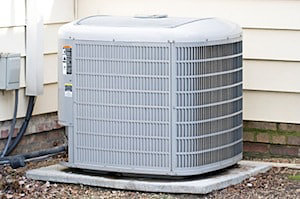What Is A Heat Pump?

July 26, 2012
An air conditioner only cools your home. A furnace only heats your home. A heat pump can do both and can do both very efficiently.
How do heat pumps work?
Heat pumps get their name from how they work. Rather than creating heat by burning gas or using electricity, heat pumps only use energy to transport heat from point A to point B. Still confused? Let’s look at it in more detail.
- In the summer heat pumps function just like an air conditioner. They use a refrigerant to transport heat out of your home, leaving your air cool and comfortable.
- In the winter instead of pumping the heat out of your home, the process is reversed and the heat pump transfers heat into your home from outside.
Types of Heat Pumps
There are two main types of heat pumps. While their core functions remain the same, they vary in their efficiency and where they transfer heat to and from.
Air-source heat pumps
Air-source heat pumps use the air outside as the transfer source. This means in summer, the heat from your home is transferred to the air outside and in the winter heat is pulled from the air outside and transferred into your home.
- Pros: Air-source heat pumps usually require little to no modification of your existing home. They are more efficient than other heating methods and less expensive than geothermal heat pumps.
- Cons: Air-source heat pumps are not as efficient as geothermal heat pumps and do not work well in extremely cold days (below 30 degrees Fahrenheit).
Geothermal heat pumps
The word geothermal is derived from Latin words that literally mean “earth heat”. Geothermal heat pumps transfer heat to and from the ground or ground water. Because the temperature below the earth's surface stays relatively constant, geothermal heat pumps are able to function even on the coldest days.
- Pros: Geothermal heat pumps are one of the most efficient methods of heating and cooling your home. You can save 50% or more on your energy bills with a geothermal system. You can also utilize a geothermal system to provide free hot water to your home.
- Cons: Geothermal heat pumps are more expensive than air-source heat pumps and more difficult to install because they require burying of pipes.
With this quick overview, hopefully you are now aware of the basics of how heat pumps work and how they can save you money on your energy bills.
For more information on how a heat pump could benefit your Sarasota area home, schedule a free estimate online with Cool Today.
Posted in: Buyer's Guide